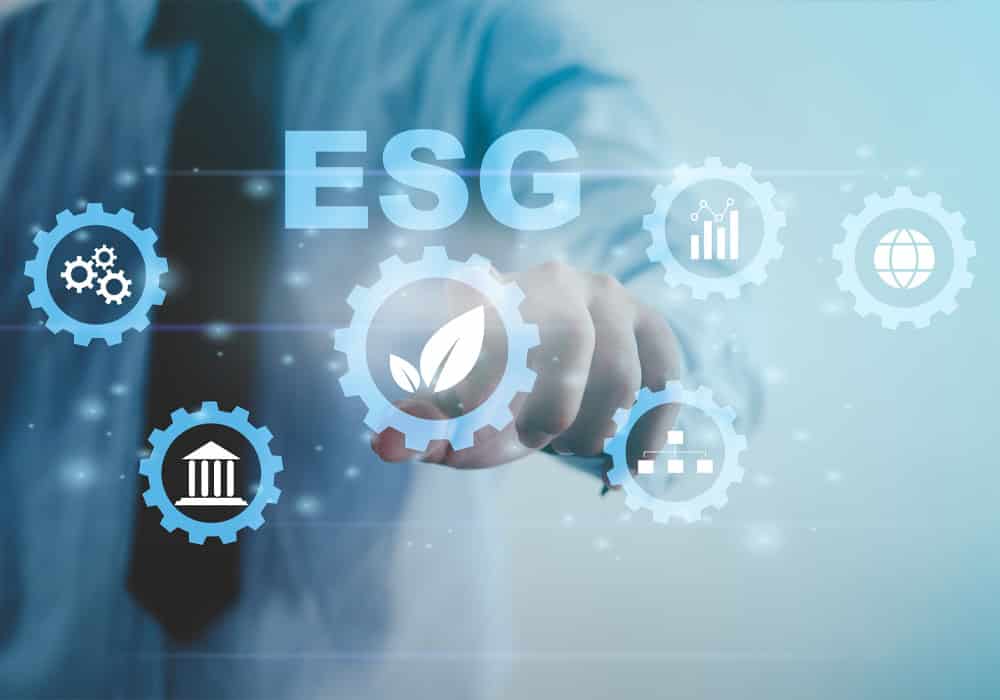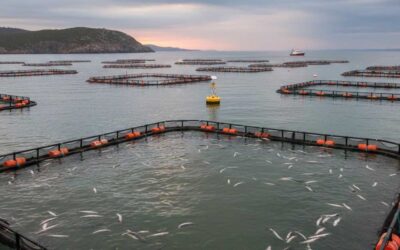
Aquaculture is one of the fastest-growing food industries in the world. As global demand for seafood rises, there is also more attention on how fish, shrimp, and shellfish are farmed. Today, buyers, investors, and governments want more than just good products—they want responsible and sustainable production.
This is where ESG comes in. ESG stands for Environmental, Social, and Governance. These are three key areas that show whether a business is acting responsibly. In aquaculture, following ESG principles is becoming essential for accessing markets, attracting funding, and building a strong reputation.
What Are ESG Principles?
ESG is a way to measure how a company impacts the world beyond just making money. It looks at how a business treats the environment, its workers, and how it makes decisions.
ESG stands for:
- Environmental: How a business affects nature and natural resources
- Social: How a business treats people, workers, and the community
- Governance: How a business is managed and how decisions are made
Together, these principles help show if a business is responsible, fair, and sustainable.
Why ESG Matters in Aquaculture
The aquaculture industry uses land, water, energy, and labour. If these are not managed well, fish farming can lead to pollution, disease, unfair labour practices, or poor animal welfare.
Following ESG principles helps aquaculture businesses:
- Protect the environment for future generations
- Improve health and safety for workers
- Build trust with customers, regulators, and investors
- Qualify for eco-certifications and export markets
- Reduce risks from legal problems or community protests
- Attract investment from banks and responsible investors
Many markets like Australia, the European Union, and North America now expect seafood producers to follow ESG practices.
Environmental Principles in Aquaculture
The environmental part of ESG focuses on how fish farms affect the planet. Poor farming practices can damage water quality, marine life, and surrounding ecosystems.
Key environmental practices include:
- Reducing pollution from fish waste and feed
- Monitoring water quality and oxygen levels
- Using sustainable feed ingredients
- Avoiding overuse of antibiotics and chemicals
- Preventing escape of farmed fish into wild ecosystems
- Managing disease outbreaks in a safe and eco-friendly way
- Using energy and water efficiently
- Restoring damaged habitats (e.g., mangroves)
Environmental performance is especially important for certification programs and export approval.
Social Principles in Aquaculture
The social part of ESG focuses on how aquaculture businesses treat people. This includes workers, local communities, and customers.
Key social practices include:
- Paying fair wages and following labour laws
- Providing safe and clean working conditions
- Respecting the rights of women and minorities
- Training and developing workers
- Supporting local communities and small suppliers
- Respecting Indigenous land and water rights
- Ensuring food safety and consumer health
- Communicating openly with the public
Good social practices lead to happier workers, stronger community support, and fewer conflicts or legal problems.
Governance Principles in Aquaculture
Governance means how a business is run and who is responsible for decision-making. It includes transparency, honesty, and ethical behaviour.
Key governance practices include:
- Having clear leadership and management roles
- Keeping accurate records and financial reports
- Following national and international laws
- Preventing corruption and bribery
- Managing risks and conflicts of interest
- Having policies for ESG and sustainability
- Listening to feedback from staff, customers, and the community
Strong governance builds trust with buyers, investors, and regulators. It also helps the business make smart, long-term decisions.
Benefits of Following ESG Principles
Adopting ESG practices is not just good for the environment and society—it also helps businesses grow and succeed.
Benefits include:
- Better access to export markets with ESG rules
- Higher product value and brand reputation
- Eligibility for green funding and investment
- Fewer legal and environmental risks
- Greater trust from customers and partners
- Improved staff morale and lower turnover
- Opportunities to join sustainability certifications
As more buyers demand sustainable seafood, ESG becomes a competitive advantage.
Market Access and ESG Requirements
Many international seafood markets now require ESG compliance as part of trade. Countries like Australia have strict import rules that favour responsible producers.
Examples of market requirements:
- Sustainability certifications like ASC or BAP
- Evidence of environmental monitoring and compliance
- Worker safety and fair treatment records
- Transparency in sourcing and supply chains
- Labelling and traceability showing ESG practices
Without ESG standards, some exporters may lose access to premium buyers or face delays in customs clearance.
ESG and Certification Programs
There are several well-known certification programs in aquaculture that use ESG principles to approve farms and processing plants.
Popular ESG-related certifications include:
- Aquaculture Stewardship Council (ASC)
- Best Aquaculture Practices (BAP)
- A.P. Aquaculture
- Friend of the Sea
- ISO 14001 (environmental management)
These programs check environmental, social, and governance areas during audits. Certified products are often preferred by supermarkets and international distributors.
How Investors Use ESG
Banks, development agencies, and private investors are also using ESG to decide where to put their money. They want to avoid risky businesses and support companies that are sustainable.
Investors look at:
- Environmental impact of the farm
- Labour conditions and community relations
- Risk management and legal compliance
- Governance structure and leadership
- Long-term planning and climate risk
Aquaculture businesses with good ESG scores are more likely to get loans, grants, or private investment.
Steps to Improve ESG in Your Aquaculture Business
You don’t need to be perfect to start working on ESG. Even small steps can lead to big improvements over time.
Simple actions to begin with:
- Reduce water pollution by managing feed and waste
- Provide safety equipment and training for workers
- Create a simple code of conduct for your team
- Keep records of farm activities and staff conditions
- Engage with the local community to build support
- Monitor and report on your farm’s environmental impact
- Follow national labour and environmental laws
- Identify your biggest risks and set goals for improvement
Over time, you can adopt more advanced systems and apply for certifications.
Challenges in ESG Implementation
While ESG offers many benefits, it can be challenging to put into practice, especially for small farms or those in developing regions.
Common challenges include:
- Lack of training or awareness about ESG
- Cost of certifications or audits
- Limited access to clean technology or eco-friendly feed
- Difficulties meeting complex international standards
- Resistance to change in business culture
Despite these challenges, more governments and industry groups are offering support for ESG training, tools, and funding.
Support and Tools for ESG in Aquaculture
There are many resources available to help aquaculture businesses improve their ESG performance.
Support can come from:
- National aquaculture or fisheries authorities
- Industry associations and cooperatives
- International development agencies and NGOs
- Certification bodies offering pre-audit guidance
- Online tools for risk assessment and record-keeping
Training workshops, guidelines, and technical manuals are often available in multiple languages. Participating in trade groups or export programs can also provide ESG support.
The Future of ESG in Aquaculture
ESG is no longer optional—it is becoming the global standard. As climate change, consumer awareness, and investor expectations grow, aquaculture businesses must adapt to stay competitive.
In the future, ESG will shape:
- How farms are built and located
- What species are farmed and how
- Which products reach premium markets
- Who gets access to finance and investment
- How seafood is tracked, labelled, and marketed
Farms that invest in ESG today will be better prepared for tomorrow’s challenges and opportunities.
Conclusion: ESG Is Essential for Responsible Growth
ESG principles help aquaculture businesses protect the environment, care for people, and build fair, successful organisations. Following ESG is not just about doing the right thing—it’s about preparing your business for long-term growth and market success.
Key points to remember:
- Environmental practices protect nature and improve sustainability
- Social practices support workers and community relationships
- Good governance improves trust, transparency, and leadership
- ESG attracts customers, investors, and trade partners
- Many countries and buyers now require ESG standards
By starting small and improving over time, aquaculture farms and businesses of all sizes can meet ESG goals and become leaders in sustainable seafood.
.



